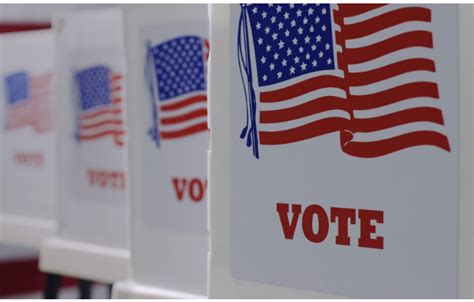1. Understanding the Importance and Impact of Voting
Voting is a fundamental right and responsibility that empowers citizens to participate in shaping their government and community. According to the United States Census Bureau, only 55.7% of eligible voters cast ballots in the 2018 midterm elections. By understanding the importance and impact of voting, you can make an informed decision about your civic duty.

- Voice your opinion: Voting allows you to express your views and influence policy decisions that directly affect your life.
- Hold elected officials accountable: Your vote holds elected officials responsible for their actions and ensures they represent your interests.
- Create positive change: By participating in elections, you contribute to shaping the policies and programs that improve your community.
2. Registering to Vote
Registering to vote is the first step towards exercising your civic duty. The requirements and procedures vary by state, but generally include:
- Meeting age requirements: You must be at least 18 years old on Election Day.
- Residency requirements: You must be a resident of the state in which you want to vote.
- Citizenship requirements: You must be a U.S. citizen.
- Meeting deadlines: Each state has different registration deadlines, typically ranging from 10 to 30 days before an election.
- Providing voter ID: Many states now require voters to present a photo ID at the polls.
3. Finding Your Polling Place
Once you are registered to vote, you need to find your polling place. This information is typically provided on your voter registration card or can be found online through your state’s election website.
- Know your precinct: Your precinct is the designated geographic area where you vote.
- Locate your nearest polling place: Most polling places are located in schools, libraries, or community centers.
- Check for early voting options: Many states offer early voting, which allows you to cast your ballot before Election Day.
4. Casting Your Ballot
On Election Day, bring your voter registration card or photo ID (if required) to your polling place. You will be given a ballot and instructions on how to fill it out.
- Read the instructions carefully: Ensure you understand the races and measures on the ballot and the voting process.
- Vote for your preferred candidates and measures: Mark your choices on the ballot.
- Submit your ballot: Follow the designated procedure for submitting your ballot, which may involve inserting it into a machine or handing it to an election official.
5. Monitoring Election Results and Making Your Voice Heard
After casting your ballot, you can monitor election results through news outlets or official election websites. It is important to stay informed about the outcome of elections and any potential recounts or challenges.
- Stay updated on election results: Follow reliable sources to track the progress of results and any potential changes or updates.
- Contact your elected officials: Express your views and concerns to your elected officials to ensure they represent your interests.
- Participate in civic engagement: Engage in discussions and activities that promote civic awareness and encourage voting.
6. Frequently Asked Questions
Q: Can I register to vote online?
A: Yes, most states offer online voter registration, but deadlines and requirements vary.
Q: What if I cannot provide a photo ID at the polls?
A: Each state has different rules regarding photo ID requirements. Check with your state’s election website for specific information.
Q: Can I vote absentee?
A: Most states allow absentee voting for various reasons, such as illness, travel, or military service. Check with your state’s election website for details.
Q: What if I make a mistake on my ballot?
A: In most cases, if you make a mistake, you can request a new ballot and start over. Check with your local election officials for specific procedures.
Q: When are election deadlines?
A: Election deadlines, including registration and voting deadlines, vary by state. Check with your state’s election website for exact dates and times.
Q: What are the consequences of not voting?
A: Not voting diminishes your influence on the political process and sends the message that you do not care about the future of your community.
Conclusion
Voting is a powerful tool that empowers you to shape your government and create meaningful change. By understanding the importance and impact of voting, registering to vote, casting your ballot, and staying informed about election results, you can make a difference in your community and beyond. Remember, your vote matters!
